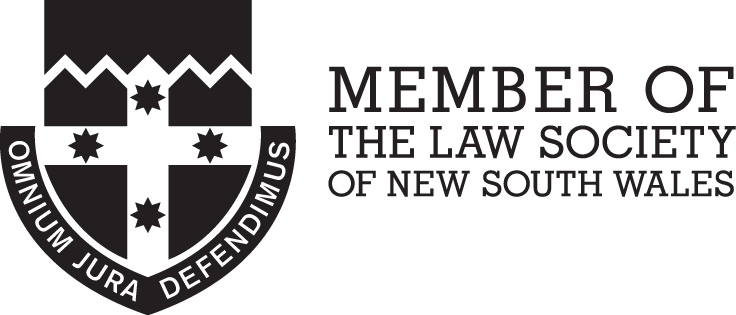|
The Federal Government has just released its much-anticipated Mandatory Code of Conduct - SME Commercial Leasing Principles during COVID-19. The Code adopts principles emanating from National Cabinet Meeting discussions concerning commercial tenancies and is to be implemented by states and territories through legislation or regulation. Until is it effected at a state level it has no legal force. However, landlords and tenants need to be prepared for the eventual discussions and amendments to current leasing arrangements which need to be negotiated on a case by case basis. Commencement Date
From 4 April 2020 at the earliest to be determined by each state, Expiry Date On the expiry of the Commonwealth JobKeeper program. What is the purpose of the Code? The purpose of the Code is to impose a set of good faith leasing principles to negotiating amendments to existing leases to aid management of cash flow for landlords and tenants on a proportionate basis as result of the economic impact caused by COVID-19. What are the applicable principles? There are 14 principles that must be applied in negotiating temporary amendments to existing arrangements. 1. Landlords must not terminate leases due to non-payment of rent during the COVID-19 pandemic period (or reasonable subsequent recovery period). 2. Tenants must remain committed to the terms of their lease, subject to any amendments to their rental agreement negotiated under this Code. Material failure to abide by substantive terms of their lease will forfeit any protections provided to the tenant under this Code. 3. Landlords must offer tenants proportionate reductions in rent payable in the form of waivers and deferrals (as outlined under “definitions,” below) of up to 100% of the amount ordinarily payable, on a case-by-case basis, based on the reduction in the tenant’s trade during the COVID-19 pandemic period and a subsequent reasonable recovery period. 4. Rental waivers must constitute no less than 50% of the total reduction in rent payable under principle #3 above over the COVID-19 pandemic period and should constitute a greater proportion of the total reduction in rent payable in cases where failure to do so would compromise the tenant’s capacity to fulfil their ongoing obligations under the lease agreement. Regard must also be had to the Landlord’s financial ability to provide such additional waivers. Tenants may waive the requirement for a 50% minimum waiver by agreement. 5. Payment of rental deferrals by the tenant must be amortised over the balance of the lease term and for a period of no less than 24 months, whichever is the greater, unless otherwise agreed by the parties. 6. Any reduction in statutory charges (e.g. land tax, council rates) or insurance will be passed on to the tenant in the appropriate proportion applicable under the terms of the lease. 7. A landlord should seek to share any benefit it receives due to deferral of loan payments, provided by a financial institution as part of the Australian Bankers Association’s COVID-19 response, or any other case-by-case deferral of loan repayments offered to other Landlords, with the tenant in a proportionate manner. 8. Landlords should where appropriate seek to waive recovery of any other expense (or outgoing payable) by a tenant, under lease terms, during the period the tenant is not able to trade. Landlords reserve the right to reduce services as required in such circumstances. 9. If negotiated arrangements under this Code necessitate repayment, this should occur over an extended period in order to avoid placing an undue financial burden on the tenant. No repayment should commence until the earlier of the COVID-19 pandemic ending (as defined by the Australian Government) or the existing lease expiring, and taking into account a reasonable subsequent recovery period. 10. No fees, interest or other charges should be applied with respect to rent waived in principles #3 and #4 above and no fees, charges nor punitive interest may be charged on deferrals in principles #3, #4 and #5 above. 11. Landlords must not draw on a tenant’s security for the non-payment of rent (be this a cash bond, bank guarantee or personal guarantee) during the period of the COVID-19 pandemic and/or a reasonable subsequent recovery period. 12. The tenant should be provided with an opportunity to extend its lease for an equivalent period of the rent waiver and/or deferral period outlined in item #2 above. This is intended to provide the tenant additional time to trade, on existing lease terms, during the recovery period after the COVID-19 pandemic concludes. 13. Landlords agree to a freeze on rent increases (except for retail leases based on turnover rent) for the duration of the COVID-19 pandemic and a reasonable subsequent recovery period, notwithstanding any arrangements between the landlord and the tenant. 14. Landlords may not apply any prohibition on levy any penalties if tenants reduce opening hours or cease to trade due to the COVID-19 pandemic. What leases are covered by the Code? Commercial tenancies including retail, office and industrial. To what class of tenant does it apply? The Code applies:
What are the practical implications? Amendments to existing leases are to be agreed on by the landlord and tenant on a temporary basis on a case by case basis by following the Code's principles. What happens if the landlord and tenant can't reach agreement on the temporary arrangement? The dispute is to be referred to mediation. How will the Code be administered? The Code will be administered by state-based Industry Code Administration Committees to promote and monitor the operation of the Code. If you or someone you know wants more information or needs help or advice, please contact us. Comments are closed.
|
Topics
All
|
Gionis Legal & Advisory Pty Ltd © 2022



